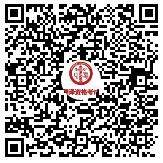2020上半年翻译资格考试二级笔译备考试题七
来源 :英语世界 2020-02-04
中Consumers: The Wild, Wild East(节选)
A booming middle class is creating the world’s most dynamic consumer market
消费者:狂野东部(节选)
中产阶级的兴起正在造就世界上最具活力的消费市场
Are you being served?
Much of this new economy is moving on from supplying goods to providing services. In most rich countries services make up at least three-quarters of GDP, but in China they account for only half. The rising middle class is demanding better services in everything from health care to finance to entertainment. Both foreign and local investors are rushing in to fill the gap.
Two decades ago films made by Walt Disney, an American entertainment giant, were banned on the Chinese mainland, but now China is Disney’s most promising market. The company’s latest “Avengers” film earned over $200m in local theatres in its first two weeks. In May Disney opened its largest-ever retail store in Shanghai. And next year Shanghai Disney, a $5.5 billion theme park, will be ready to receive the crowds. Dalian Wanda, which made its fortune in property, is building a massive $8 billion film studio in Qingdao and will be spending over $30 billion on theme parks across China, confronting Disney head on.
Kai-fu Lee of Innovation Works believes that service startups are capable of creating billion-dollar industries. He points to Helijia, a firm valued at $300m that provides pedicures in people’s homes. “They can train workers affordably; Chinese love getting pampered; and our urban density allows this… you can’t do this in Kansas.” His firm is funding firms delivering services ranging from haircuts to car maintenance.
Jean Liu, president of Didi Kuaidi, thinks the sharing economy will allow scarce resources to be used more efficiently. Her ride-sharing firm counts both Tencent and Alibaba as investors. It offers everything from fancy cars and taxis to shuttle buses and car pools – or even someone on a bicycle to drive you home in your own car. It clocks up 6m rides a day, far outpacing Uber.
Neusoft, based in Shenyang, a city in China’s gritty industrial north-east, was started in 1991 with just $3,000 by Liu Jiren, an erstwhile academic. It is now one of China’s biggest IT-services providers. Having created a computer operating system that quickly got ripped off, his firm nearly went under. That taught him the value of protecting intellectual property. When he was a visiting scholar at an American government laboratory, he noticed that academics worked closely with corporate researchers. That inspired him to invest heavily in R&D. Among many other things, Neusoft makes systems that allow medical records to be viewed on mobiles. It is also developing a shared-services business model for medical equipment that will allow users to pay by transaction.
What helped Neusoft take off, says Mr Liu, was that there were no SOEs to block new software firms. “The Chinese state today is technologically sophisticated… but that was not the case at the start of the IT boom,” says Mr Liu. “We got lucky because the IT sector was so new, so driven by talent, that the government didn’t understand how it worked.”
口译:翻译资格考试三级口译模拟题 翻译资格考试二级口译模拟题 翻译资格考试一级口译模拟题
笔译:翻译资格考试三级笔译模拟题 翻译资格考试二级笔译模拟题 翻译资格考试一级笔译模拟题
 资料来源中华考试网校乔宏轩老师主讲教材精讲班课程,完整讲义下载进入个人中心>>
资料来源中华考试网校乔宏轩老师主讲教材精讲班课程,完整讲义下载进入个人中心>>
下载焚题库APP——翻译资格考试——题库——做题,包括章节练习、每日一练、模拟试卷、历年真题、易错题等,可随时随地刷题。【在线做题>>】【下载APP掌上刷题】
翻译资格考试复习有问题?不知道怎么高效备考?加入考试群760421514 和考生一起交流信息。
和考生一起交流信息。



